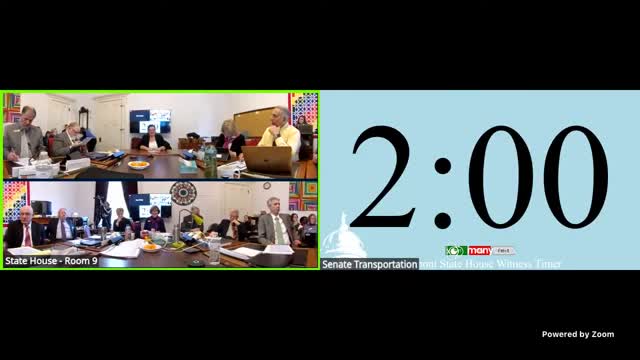Vermont advocates urge $2.3M winter-shelter extension and major housing investments in Budget Adjustment Act
Get AI-powered insights, summaries, and transcripts
Subscribe
Summary
Homelessness and affordable-housing advocates asked the House Appropriations Committee to add a $2.3 million extension of winter weather emergency shelter protections and to fund multiple housing programs including $30 million for VHCB and $2.8 million for Developmental Disability Housing Initiative projects.
Advocates for people experiencing homelessness pressed the House Appropriations Committee on Jan. 23 to extend winter weather emergency shelter protections through June 30 and to add one-time funding for housing production and supportive housing.
The appeals came during the committee's public hearing on the Budget Adjustment Act. Brenda Siegel, executive director of End Homelessness Vermont, told the committee the organization saw seven deaths in a single week last November and multiple hospitalizations with hypothermia after earlier budget-driven limits on shelter. “We cannot let what happened last fall happen again,” Siegel said, asking the committee to appropriate $2,300,000 to extend the winter weather program, which she described as an immediate life-safety intervention.
The request for $2.3 million was echoed by Frank Knack, executive director of the Housing and Homelessness Alliance of Vermont, who described a statewide shelter network of about 585 beds facing an estimated 3,500 unhoused people and warned of a further strain when winter protections lapse on April 1. Knack urged the committee to appropriate $2,300,000 to extend the protections and also outlined larger housing funding requests: $30,000,000 for the Vermont Housing and Conservation Board (VHCB) to produce up to 300 homes, $2,800,000 for the Developmental Disability Housing Initiative (DDHI) to create housing for 10 residents, and $25,000,000 for programs run by the Vermont Housing Finance Agency (VHFA).
Parents and project partners described one DDHI project in Burlington overseen by Champlain Housing Trust that remains approximately $2,800,000 short of its $6.7 million budget. Katie Tormey, a parent and DDHI volunteer, said the project involves renovating and adding to an existing building to create permanent, supported homes for 10 adults with intellectual and developmental disabilities and includes accessibility upgrades such as an elevator. Susan Aronoff of the Vermont Developmental Disabilities Council said the state-funded planning grants and a 2022 study (Act 186) showed a need for hundreds of units of service-supported housing and that the requested $2.8 million would “bring us over the finish line.”
Cathedral Square and other nonprofit developers asked the committee to allocate $30,000,000 to VHCB in the BAA for permanently affordable housing production. Cathedral Square's Molly Dugan said VHCB funding leverages large amounts of non-state capital and the nonprofit housing network has a pipeline that could create “hundreds of new homes” if funded.
Committee members discussed timing and fiscal tradeoffs, noting uncertainty about federal funding trends and whether one-time BAA spending would create base commitments for FY26. Chair remarks indicated the committee expected to review written testimony and JFO (Joint Fiscal Office) memos to clarify caseload- and utilization-driven budget adjustments. The committee did not take votes at the hearing.
Advocates asked the committee to move funds in the BAA so projects can proceed before the end of the fiscal year, and they emphasized the difference between emergency shelter (winter protections) and long-term housing solutions. Siegel said both emergency shelter and housing production are needed concurrently. Knack and others requested the committee consider making the one-time investments now to prevent immediate harms while also supporting long-term affordable housing development.
